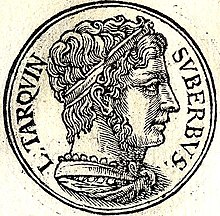Zonaras, Abridgment of Histories 1.2:
“But, if I may offer a defense of myself, I did not set off as it were from the home of my own volition to undertake this task of writing history. Some of my dear friends saw that I was idle and set this task to me, saying, ‘Employ your leisure for something useful to the common good, and you will receive a reward from it before the eyes of God.’ They added further that of those who labored at history and wrote of ancient deeds, some wrote the history and wars of the ancients in excessively copious detail, going through all of the arrangements and the complexities of the armies, as well as the lay of the battlefield, the individual fortifications, and anything else which followed upon them. They have added to all of these things descriptions of the land, the difficulties of the marches, the steepness and challenges of the mountains, the narrowness of the hollows, the strength of the cities and the staggering height of the fortifications, such that one might call them ethereal. Their writing has strained toward explication with the aim of showing where they stand as concerns their writing ability, and for that reason they set up, in the middle of the work, something digressive or rhetorical as they delight in their writing.”

᾿Αλλ’ ἵνα τι καὶ ὑπεραπολογήσωμαι ἐμαυτοῦ, οὐκ οἴκοθεν ὡρμήθην πρὸς τὸ ἐγχείρημα, ἄνδρες δέ με φίλοι πρὸς τοῦτο παρέθηξαν, σχολάζοντα βλέποντες καὶ “χρῆσαι” λέγοντες “τῇ σχολῇ πρὸς ἔργον κοινωφελές, καὶ κείσεταί σοι πρὸς τοῦ θεοῦ κἀκ τούτου ἀνταπόδομα.” προσεπῆγον γὰρ ὡς οἱ περὶ τὰς ἱστορίας πονήσαντες καὶ τὰ πάλαι γενόμενα συγγραψάμενοι, οἱ μὲν διεξοδικώτερον τὰς ἄλλας τε πράξεις τῶν παλαιῶν ἀνδρῶν καὶ τὰ στρατηγήματα συγγεγράφασι, παρατάξεις διηγούμενοι καὶ συμπλοκὰς στρατευμάτων καὶ στρατοπεδείας καὶ χάρακας καὶ εἴ τι τούτοις ἑπόμενον, πρὸς δὲ τοῖς περιηγήσεις χωρίων καὶ δυσχωρίας ὁδῶν καὶ ὄρη προσάντη καὶ δύσβατα καὶ αὐλώνων στενοχωρίας καὶ πόλεων ὀχυρότητας καὶ πυργωμάτων ὕψη μετέωρα καὶ ὡς ἄν τις φαίη αἰθέρια· τοῖς δὲ καὶ πρὸς ἐπίδειξιν συντέθεινται τὰ συγγράμματα, ἐπιδεικνυμένοις ὅπως εἶχον περὶ τὸ γράφειν δυνάμεως καὶ διὰ τοῦτο δημηγορίας τε μεταξὺ τιθεῖσι καὶ παρεκβατικώτερον ἢ καὶ ῥητο-ρικώτερον κεχρημένοις τῷ λόγῳ·









